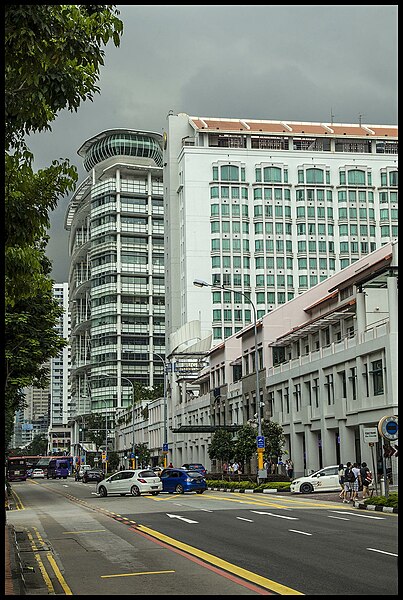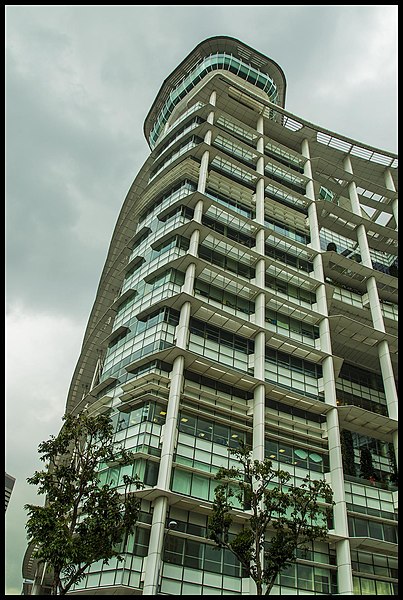
Thammasat University students interested in ASEAN studies, education, political science, sociology, and related subjects may find it useful to participate in a free 30 January Zoom webinar on Youth and Civic Engagement in Southeast Asia.
The event, on Tuesday, 30 January at 9am Bangkok time, is presented by the ISEAS – Yusof Ishak Institute, Singapore.
The TU Library collection includes several books about different aspects of civics.
Students are invited to register at this link:
https://us06web.zoom.us/webinar/register/1617054811038/WN_urGbYi6JSqq-4PxNrVZGvg#/registration
The event webpage explains:
REGIONAL SOCIAL & CULTURAL STUDIES PROGRAMME
Southeast Asia has one of the largest youth populations in the world. Out of an estimated population of 629 million in 2016, about 213 million were aged between 15 and 35 years old, with the figure slated to grow to 218 million by 2030. In addition to the critical mass which they represent, youths in the region are also active in their political and civil spheres in their respective countries. From the Milk Tea Alliance to the protests in Myanmar, youths have taken to various platforms to air their views and influence policies. These range from physical protests to digital activism in the social media space, and even youth-centric political parties, like the Malaysian United Democratic Alliance (MUDA) and the now-defunct Future Forward Party in Thailand.
In light of the burgeoning developments in this field, this seminar seeks to understand the civic and political attitudes of youths in Southeast Asia. Zooming into three countries in the region, the seminar offers a theoretical discussion of the relationship between youth-driven online and offline activism, dissecting notions of “slacktivism” and analysing the determinants which contribute to offline activism in Indonesia. It also looks at Malaysia’s increasingly conservative wave among the youth, examining its origins and manifestations, especially in relation to social capital within the country. Concurrently, Thailand’s youth activism and outlook at various levels of education (middle and high school, and universities) will be examined, elucidating the deep-rooted socioeconomic and political issues which young people perceive in Thailand.
About the Speakers
Iim Halimatusa’diyah is a Visiting Fellow at the Regional Social and Cultural Studies Programme at ISEAS – Yusof Ishak Institute, a Professor of Sociology at Islamic State University (UIN) Syarif Hidayatullah, and a Deputy Director for Research at the Center for the Study of Islam and Society (PPIM) UIN Jakarta. […]
Syaza Shukri is a Visiting Fellow at ISEAS – Yusof Ishak Institute. She is an Associate Professor teaching political science at International Islamic University Malaysia (IIUM), where she completed her PhD in 2018. […]
Panarat Anamwathana is a Lecturer at the Department of History, Faculty of Liberal Arts, Thammasat University in Thailand. She is a Visiting Fellow at the Regional Social and Cultural Studies Programme of the ISEAS – Yusof Ishak Institute. Panarat holds a PhD in economic and social history from the University of Oxford. Her main research interests include economic history, political economy, and women’s history.

Last year, Dr. Syaza Shukri published an editorial that has been posted online. It reads in part:
Democracy finally manifested in Malaysia via the unity government
In Malaysia, democracy recently manifested in the unity government.
Nevertheless, there was dissatisfaction by loyal supporters of political parties when they quickly learned that the parties they voted for had decided to work with those they were campaigning against in October 2022.
Some party supporters I have talked to even declared they have no intention to vote in the upcoming state elections because of this ceasefire as they feel their votes were ‘wasted.’
While one can be a principled party supporter and ideologue, a democrat understands that getting things done, especially in a nation of 33 million people, requires compromises. Moreover, in a heterogenous country such as Malaysia, compromises are required to keep the people together.
Concessions and consensus, unfortunately, have become dirty words in a polarised world.
Even the American Congress has faced difficulties in building consensus since at least 2010 during President Obama’s first term. In such a divisive environment, working together appears weak.
To the contrary, finding a middle ground shows that political players are magnanimous in putting the interest of the nation above the party.
After the 15th general election in Malaysia, there have been claims that different configurations of political leaders are having talks at different hotels, both domestic and international, to bring down the current government.
This is worrisome because they are doing so while appropriating the language of democracy.
While it is true that democracy is beyond election, once an election has concluded, a democratic nation would allow the winners the opportunity to prove themselves. If the government is inefficient, parties and/or members of parliament may officially withdraw support from the government—this is best done in a motion of no confidence in Parliament in the name of transparency.
While the federal government appears intact now, the Sabah state government had an unsuccessful minor coup attempt. The current Sabah state government was formed following the triumph of loose allies in the 2020 election.
The constitutionality of its Chief Minister following his departure from Bersatu should be tested in court following the implementation of the anti-party hopping law. That would be democracy; allowing due process to take place instead of pulling the rug from beneath people.
The people here refer to Malaysian voters who are left out of political maneuverings by the elites.
Soon after our prime minister returned from Sabah, the Umno General Assembly was underway with the party obviously requiring much needed soul searching after going on a downward trend in terms of voters’ support since 2008.
Their failure to retain two-thirds majority in 2008 was called a political tsunami and in response Umno took a more hard-line stance on ethno-religious issues.
This strategy failed at subsequent elections and led to its first ever defeat in 2018.
Using ethno-religious rhetoric only worked in 2020 when the Perikatan Nasional government was formed through political machinations but failed to sway voters to Umno’s side in 2022.
Perhaps it is time for the party to rehabilitate its image by building consensus in a good-faith effort to meet the interests of all Malaysians who are eager for peace and stability.
Democracy is not about a single ideology, ethnicity or religion claiming to represent all the people in a nation through the ballot box. That is a majoritarian dictatorship.
Democracy is about finding solutions despite the differences that are apparent in any and all society.
In this way, when the wheels turn and election winners become losers, it would not be viewed as a zero-sum situation. And this is what we want.
When losers find space in the system, they are less likely to use non-democratic means to get to power either through closed door negotiations or a dangerous riot at important government buildings.
Earlier this month Aj. Panarat posted an article on the ISEAS – Yusof Ishak Institute website,
Yok’s case and Thailand’s Treatment of Child Activists.

(All images courtesy of Wikimedia Commons)
